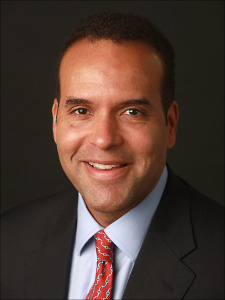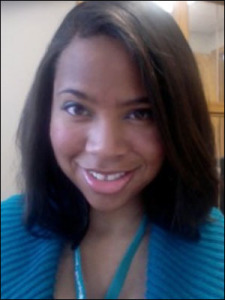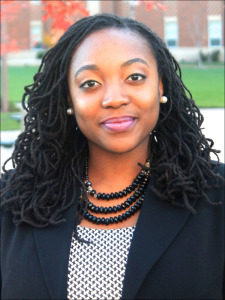Missouri School of Journalism to Recognize 134 Students at Dec. 19 Commencement
Ceremony Scheduled to Start at 3:30 p.m. at the Missouri Theatre
Columbia, Mo. (Dec. 15, 2014) — The Missouri School of Journalism will recognize 134 students at the 3:30 p.m. commencement ceremony on Friday, Dec. 19, at the Missouri Theatre. Seating is open, and no tickets are required.
A live stream of 2014 December commencement ceremonies held at the Missouri Theater will be available after 1 p.m. on Friday, Dec. 19.
Graduate degrees will be awarded to 3 doctoral candidates and 31 master’s students, five of whom earned their degree online.
Of the 100 undergraduates, 7 studied convergence journalism; 11, magazine journalism; 7, photojournalism; 19, print and digital news; 9, radio-television journalism; 3, science and agricultural journalism; and 44, strategic communication.
Of the graduating seniors, 22 earned Latin honors by achieving at least a 3.5 grade point average for the last 50 credit hours.
The top 10 percent of the School’s graduates will be inducted into Kappa Tau Alpha, a journalism honor society founded at the Missouri School of Journalism in 1910. The KTA reception will be held before the ceremony from 1-2 p.m., Friday, Dec. 19, in the Palmer Room (100-A) in the Reynolds Journalism Institute.
| Master of Arts | Bachelor of Journalism | ||
|
|
|
|

The alumnus speaker will be John Haskins, BJ ’85, managing editor of magazines at The New York Times. He is the lead administrator of The New York Times Magazine, which has been a part of the Sunday paper for nearly 120 years, and manages T, the Style Magazine.
In his nearly 25 years at The Times, Haskins has served in a number of positions on the news and feature sides of the newspaper. He started out as a copy editor on the National Desk, working on domestic and political news, and then transitioned to the Graphics Desk, where he worked on a team that visualized the news in new ways.
In 1997, Haskins moved to The Times’ website, then just a year old. He served as deputy, then editor of an online-only section called CyberTimes, which chronicled the rise of the Web. After stints in editorial positions at the Technology, Newsdesk and Real Estate desks, he became editor of the standalone Escapes section, which covered not just real estate but also weekend travel.
In 2009 Haskins became the daily assigning editor of the International Herald Tribune in Paris. He then returned to The Times in New York for his current position as managing editor of magazines.
A native of Des Moines, Iowa, John began his editing career at the Minneapolis Star Tribune and moved on to Newsday before joining The Times.

The student speaker will be Jamie Crockett, a strategic communication major and multicultural certificate recipient from East St. Louis, Illinois. She began her undergraduate career as a radio-TV reporting and anchoring major. She transitioned to her current emphasis area in January 2014 to focus on public relations. She has interned at KOPN 89.5 FM community radio station, anchored at KOMU-8, reported for KBIA-FM and served as a communication intern at the Missouri Division of Tourism. Crockett tied for second place in the 2012 Women’s Media Center Girls’ State of the Union Address contest, where the judging panel included actress Marisa Tomei and author-activist Gloria Steinem.

The master of ceremonies will be Sirrah T. Joof, an arts and culture journalism major from Chicago whose family immigrated from The Gambia, West Africa. Joof served as the coordinator for Black Women Rock!, an annual award show that honors Columbia’s unsung heroes. She interned with Women Employed in Chicago, a nonprofit organization that advocates for women’s rights in the workplace and in education. Joof served as a community adviser and peer adviser for Residential Life for nearly four years and worked as a career specialist at the University of Missouri Career Center. She was also the public relations chair for both the MU African Students Association and Target Hope, and is a member of Sigma Alpha Pi Society of Leadership and Success.
Jamie Crockett
Student Speaker
Good afternoon, and welcome to all of the distinguished guests who are present to support the December 2014 Missouri School of Journalism graduating class.
Those who are involved with the J-School, as we so fondly call it, have a mutual understanding. We’ve cried together, we’ve stayed up late together, and we’ve encouraged one another. We’ve had our share of challenges while practicing the Missouri Method of “learning by doing.”
But we’ve also gained many success stories along the way. There is almost no greater feeling of satisfaction, and relief, than when we successfully meet a pressing deadline, find out a professor finally approves a package story, study abroad to experience new cultures, discover our passions or even land the internships or jobs of our dreams.
Going through the fires of the School is no easy feat. But if it were easy, it would not be worth it.
If we choose to allow experiences to make us better and not bitter, then we’re one step closer to being a solid foundation for those who can’t stand the heat on their own. You’ve been through the fire and survived, and when you’re strong enough, help someone else go through it. We stand firmly on the shoulders of those who came before us. Never forget where you come from. And yes, I know that was a grammatical error.
The J-School faculty and staff, and even our loved ones, should be proud to say that they’ve helped shape us to be the best we can be. If it weren’t for these fantastic individuals welcoming us to the J-School family, in a home away from home, we would not be in these seats. They have gone above and beyond because they truly care.
So before you leave this place, thank a loved one, a professor, adviser, mentor, a faculty or staff member, because you would not be here today if it were not for their dedication to see you through to the end of this part of your journey. They believe in you, and they believe in the profession of journalism.
You have a duty to yourself, to the public and to your clients, to hold true to your moral compass and produce work that cannot be matched by anyone else.
So whatever may come your way, whether professionally or personally, external elements cannot and will not affect the core of who you are.
You are bearers of light. You are wise and determined to uncover what’s hidden. So rise and shine greatness. It’s time to change the world.
John Haskins, BJ ’85
Alumnus Speech
Congratulations to you all today.
Thank you to the Journalism School for inviting me, and thank you to the graduates for all your years of hard work, and to your families and friends for being part of this great day.
I am very humbled to be here today. I want to thank Dean Mills, who asked me to return to Columbia and speak.
It’s an honor to be asked, and it’s an honor to share with you some of the lessons I have learned since that day I crossed the stage many years ago.
For you, today marks a huge milestone, not only the completion of a formal education, but the beginning of a great new adventure.
Whether you are headed off to a job in your chosen career immediately, whether you are headed off to graduate school to further expand your mind, or whether you are still trying to find your path, either here in Columbia or some far-flung destination – you all are starting an adventure. And I’m a little jealous. As I look out at all of you sitting there, I can say, in all honesty, you are way ahead of where I was when I graduated.
You have spent your college careers in a time of incredible change. You’ve learned to work with technology that didn’t even exist in my time here, and you know what it’s like to see the journalism landscape change almost overnight. You are used to change, and the J-School has prepared you for change. And this will serve you well.
You may not know that for each commencement ceremony, the J-School always invites a previous graduate to speak. That’s why you’re getting me and not, say, Julian Assange, or one of the Real Housewives.
Clearly, the J-School brings back alumni because the faculty wants you all to learn – even at this late hour – to learn from your predecessors, to have them share their experiences in the field, so that they can help you succeed.
So, let’s get right to it: A few things I’ve learned over the years.
First, a couple quick don’ts.
When reaching out to a prospective employer, do not begin an email with “Hi.” “Hi, John.” I do not know you, and yet you are so very friendly. I get a lot of these. And I delete most. No. No “Hi.” Instead, err on the side of formality.
Second: D0n’t go into an interview unprepared, or approach an employer without doing your research. Seems straightforward. But you’d be amazed at what I’ve seen over the years. Don’t, for example, pitch your first-person piece on dating practices to The Economist.
Now, a couple dos.
When you go into the job market, or when you are looking for a promotion, keep this in mind: The best way to get what you want is to solve someone else’s problem.
That may seem like an odd piece of advice as you are trying to build your own career, but hear me out.
As you start your careers, you’ll have your goals, and your dreams, and I urge you to hold on to those. But I also want to you think about the benefit of acknowledging the needs of those around you. Is there an undesirable overnight shift that needs covering? Take it. Does your employer have a tough assignment that’s not your first choice, or second? Do it.
See a problem? Help solve it. You’ll build trust. You’ll earn respect.
This is not to say that you should spend your entire lives running around doing clean-up work for others. As I said, hold onto your dreams and aspirations.
Just remember that as you do that, there are often bigger, more urgent, or even more important challenges that involve others around you, and you should be ready to take those on.
Another tip – one I have ignored at my own peril – is to always be professional, so much so that you can “OUT-professional” those you deal with.
Now, there will be times when you are tested – perhaps facing a difficult deadline, or some other high-pressure situation when patience is a scarce.
A co-worker might raise his voice. But you need to be prepared to react calmly and evenly.
A subject of a piece you are working on may fire off a stinging email. But you need to respond with grace.
So many times I have seen colleagues get caught up in the passion of their work, or the conviction of their cause, and overstep – trying to win the battle, only to lose the war.
After the smoke clears and you go back to work next day, you’ll be glad to took the high road.
It may seem simple today. But you will be in high-pressure situations in the work world, and you will want to speak your mind or tell someone off or just prove your point. But if you don’t do it in a professional way, you’ve lost.
One last thing I’d like to share before I finish up.
It’s a quite small story from my time in Columbia, but it left a lasting impression, and it underscores what I said about professionalism.
During my first semester, I had a work-study job in an office in the Journalism School. I was just 18, had never worked in an office, and I was largely unqualified for any job other than bagging groceries. The three professors who worked in the office ranged from kindly, to polite, to downright intimidating.
But there was also an administrator in the office, a woman named Doris Barnhart. She had many roles as I recall, including working with the Urban Journalism Workshop each summer, and with the Missouri Interscholastic Press Association. But I remember her in her role working alongside three professors, who all trusted and depended on her to keep the office running.
One day, Doris came over to my desk – where I was sitting amid a pile of carbon paper and mimeographs (your parents can explain those artifacts) – and she asked me to proofread an official letter she had just typed up on her blue IBM Selectric typewriter.
Maybe it wasn’t such a big deal, but it seemed like that to me. I was just a nervous, newbie freshman, and I was being asked to look over a copy of an official document, on Journalism School stationery.
I sat down and read it carefully. After a few minutes, I actually caught something. It was probably no more than an apostrophe, but I was proud of myself, because I already knew Doris was no slouch at the Selectric.
I went back to her desk, and I pointed out what I had seen.
She looked up from her typewriter, then she thanked me, sincerely.
That’s all. That is the entirety of the story.
Yet it was one of the most memorable experiences of my college years. It was her show of confidence, an acknowledgement I could actually add something that helped others in the office. And it was her sincere thank you.
I guess you could also say it was my first copy-editing gig.
You should never underestimate the power of showing appreciation. I have never forgotten that day, and in fact, I invited Doris here today, to return the favor.
I hope all of you in the coming years, find rich and rewarding careers – telling stories, capturing images, crafting messages – showing the world what you can do with the skills you’ve gained here at Mizzou.
As you do, remember, solving problems, maintaining your professionalism – and showing appreciation for those around you – those are the things that will matter most.
So thank you, J-School, thank you, Doris, and thanks to all of you.
Best of luck.
Updated: July 31, 2020